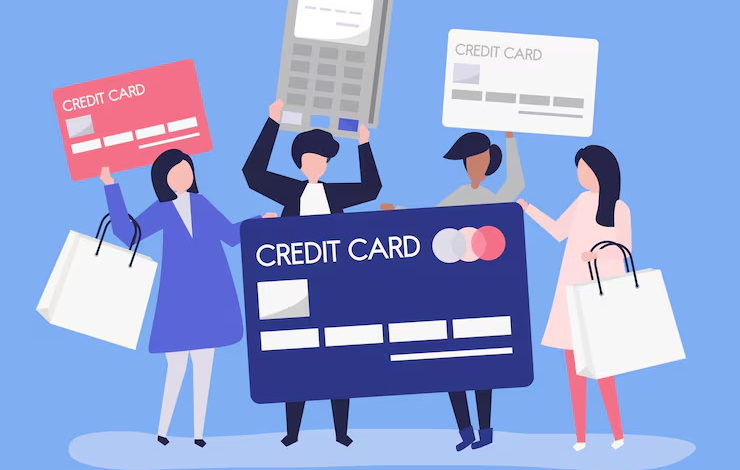How Consumer Credit Solutions Impact Business Lending Decisions

Access to capital can make or break a business. When a company needs funding to expand operations, purchase inventory, or manage cash flow, lenders don’t just look at profit margins and revenue projections. They dig deep into credit histories and financial behaviours of the company in question.
Consumer credit solutions play a bigger role in business lending than most entrepreneurs realize. These tools help lenders assess risk and make faster decisions about loan applications. The connection between personal and business credit often catches business owners off guard.
Many small business owners assume their personal finances stay separate from their company’s borrowing power. That’s rarely true. Lenders frequently review the credit profiles of business owners, especially for newer companies or those seeking smaller loans.
Why Personal Credit Matters for Business Loans
Most small businesses don’t have extensive credit histories of their own. A startup might have zero track record. Even established companies sometimes lack robust financial documentation.
Lenders face a problem here. They need ways to predict whether a business will repay borrowed funds. Personal credit becomes a proxy for trustworthiness and financial management skills.
Think about it from the lender’s perspective. If someone struggles to manage personal debts, will they handle business obligations any better? Maybe. But the risk seems higher.
This is where consumer credit solutions enter the picture. These systems aggregate financial behaviours from multiple sources. They track payment histories, outstanding debts, and credit utilisation patterns.
How Lenders Use Credit Data
The lending process starts with data collection. Applications trigger searches across various credit reporting agencies. Both business and personal credit reports get pulled for review.
Lenders don’t just glance at credit scores. They examine the details behind those numbers. Late payments raise red flags. High debt-to-income ratios suggest financial strain. Recent credit inquiries might indicate desperation for funding.
Consumer credit solutions streamline this analysis. Automated systems can process thousands of data points in seconds. Risk models assign probability scores that help lenders categorize applications.
Some businesses get approved quickly. Others face immediate rejection. Many fall somewhere in between, requiring human review and additional documentation.
The speed and accuracy of these assessments matter. Businesses need timely answers about funding. Lenders need to minimize losses from bad loans. Credit evaluation tools serve both interests.
See also: From Boardroom to After Hours: Tailored Business Suits That Fit Every Occasion
The Personal Guarantee Factor
Personal guarantees create direct links between the individual and the business credit. When business owners sign these agreements, they accept personal liability for company debts.
Lenders love personal guarantees. They reduce risk by adding another layer of recourse. If the business defaults, the lender can pursue the owner’s personal assets.
This arrangement makes consumer credit solutions critical for business lending. A thorough credit assessment protects both parties. Borrowers with strong credit histories often negotiate better terms. Those with problematic credit might face higher interest rates or stricter conditions.
Some entrepreneurs resist mixing personal and business finances. They worry about risking home equity or retirement savings. Those concerns are valid. But refusing to provide personal guarantees typically limits funding options.
Credit Utilization and Lending Decisions
How much available credit someone uses matters. Maxed-out credit cards signal financial stress. Lenders interpret high utilization as increased default risk.
Consumer credit solutions track these patterns across accounts. They calculate ratios and compare behaviors against industry benchmarks. A business owner carrying heavy personal debt loads might struggle to secure business financing.
Perhaps this seems unfair. Business and personal finances serve different purposes. But credit utilization reveals spending habits and financial discipline. These traits transfer across contexts.
Lenders also watch for recent changes. Sudden spikes in credit usage often precede financial trouble. Someone applying for a business loan while simultaneously maxing out personal cards raises questions.
The Role of Credit Inquiries
Every loan application generates a credit inquiry. Too many inquiries in a short period damage credit scores. They suggest someone is shopping desperately for funding.
Credit reporting systems distinguish between hard and soft inquiries. Hard inquiries result from actual credit applications. They stay visible on reports for months or even years.
Lenders reviewing consumer credit solutions see this inquiry history. Multiple recent applications for business loans, personal loans, or credit cards create concern. Are other lenders rejecting this applicant? What do they know that isn’t obvious from the credit report?
This dynamic creates a catch-22 situation. Businesses need to shop around for favorable loan terms. But too much shopping damages their approval chances. Finding the right balance requires strategy and timing.
Fraud Prevention Through Credit Analysis
Identity theft and financial fraud cost lenders billions annually. Consumer credit solutions help detect suspicious activities and protect against fraudulent loan applications.
Cross-referencing personal and business information reveals inconsistencies. Mismatched addresses, phone numbers, or employment histories trigger additional verification steps.
Some fraud attempts are obvious. Others are sophisticated operations that exploit system weaknesses. Credit analysis tools use pattern recognition and anomaly detection to flag potential problems.
This protection benefits honest borrowers too. Strong verification processes maintain system integrity and keep borrowing costs lower for everyone.
Building Creditworthiness Over Time
Business owners concerned about credit-related lending barriers can take action. Improving personal credit strengthens business funding prospects.
Start by addressing negative items on credit reports. Dispute errors. Negotiate payment plans for outstanding debts. Establish consistent on-time payment patterns.
Reducing credit utilization helps. Paying down balances and avoiding unnecessary new accounts shows financial restraint. These behaviors signal lower risk to potential lenders.
Building business credit separately takes time, but pays off. Opening vendor accounts that report to business credit bureaus creates an independent track record. Over time, strong business credit reduces reliance on personal credit evaluations.
Looking Ahead
The relationship between consumer credit and business lending continues evolving. Technology enables more sophisticated risk assessment. Alternative data sources supplement traditional credit reports.
Some lenders now consider cash flow patterns, social media presence, and industry-specific metrics. These additional factors provide fuller pictures of creditworthiness.
Still, personal credit remains central to small business lending decisions. The connection between individual financial management and business success proves difficult to ignore.
Business owners who understand this reality gain advantages. They can proactively manage both personal and business credit profiles. Better credit positioning translates to more funding options and favorable terms when capital needs arise.





